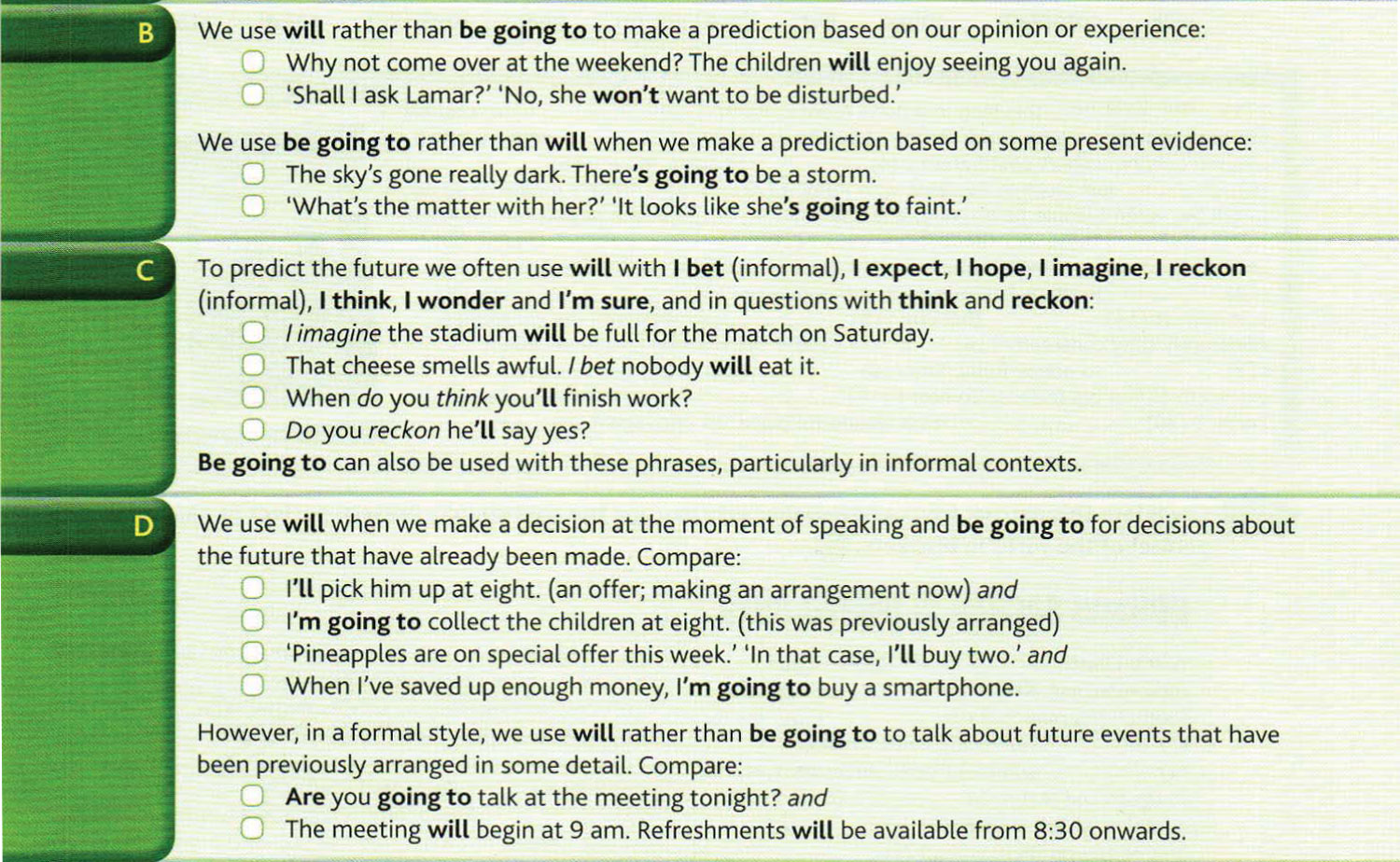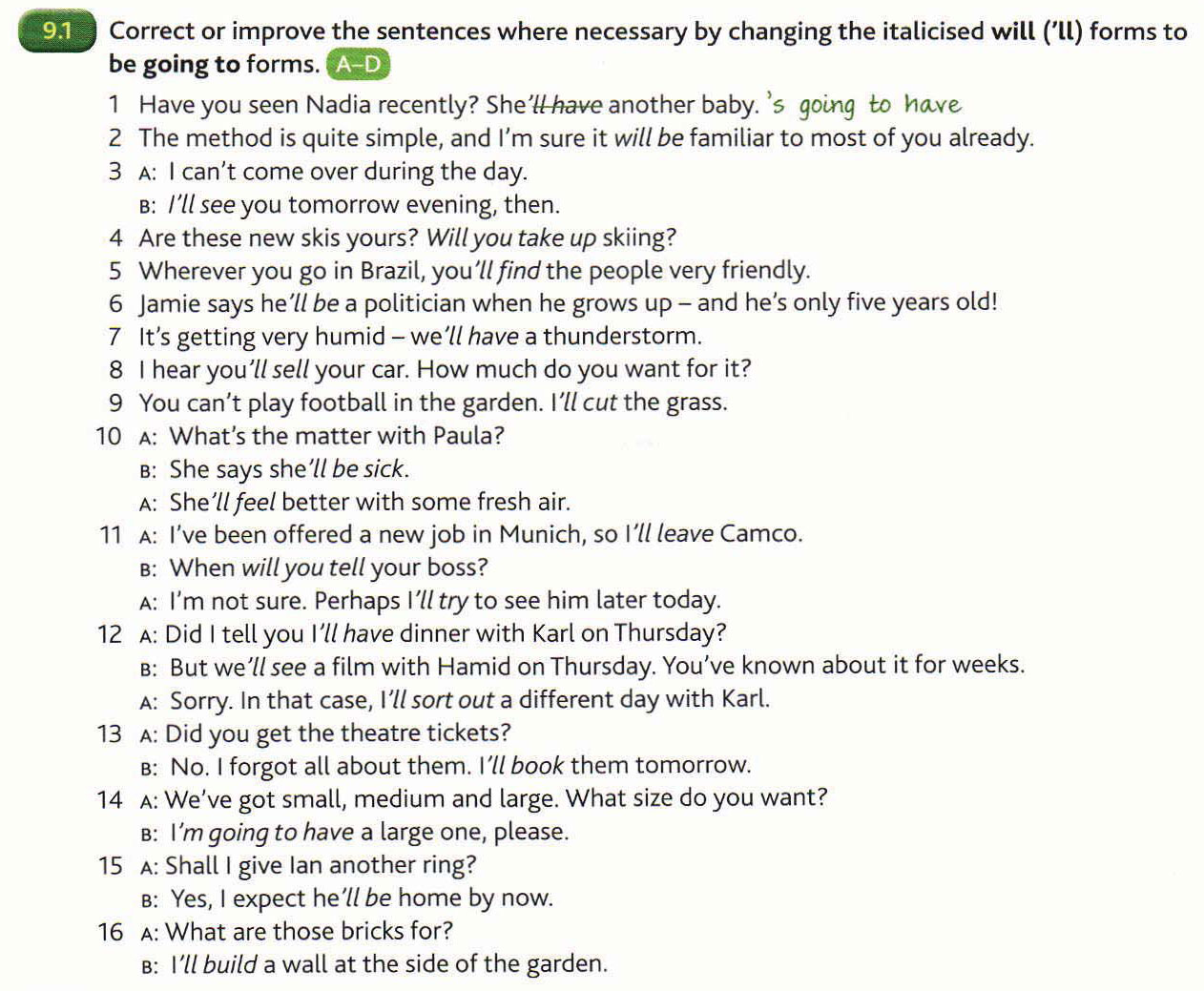
This is a sample lesson from our advanced grammar course. This book is suitable for the following levels:
| TOEIC | TOEFL | IELTS |
|---|---|---|
| 800+ | 90+ | 7.0+ |
The book covers all main areas of advanced English grammar. More information is available on the advanced grammar course page.
Introduction
In this lesson, you will learn some differences between will and be going to.
Warm Up
What do you think the difference between "will" and "be going to" is?

